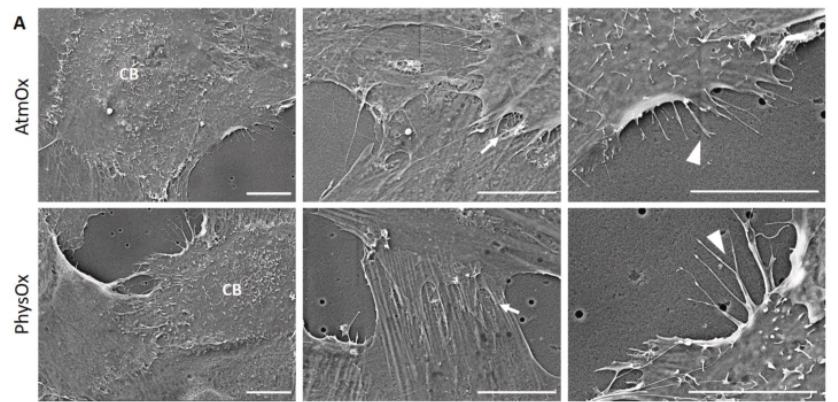Recent publication showcasing our PODO/TERT256 telomerized cell line
February 16th, 2024, Vienna, Austria
Our telomerized human podocyte cells (PODO/TERT256) were employed in an article recently published by Prof. Daniel Dietrich’s lab at the University of Konstanz, Germany.
The groundbreaking research highlights the promising utility of PODO/TERT256 as a robust in vitro model for predicting nephrotoxicity, with a particular emphasis on the crucial influence of physiological oxygen tension (PhysOx).
This study underscores the inadequacy of current methods for predicting nephrotoxicity in humans and emphasizes the need for advanced in vitro models that closely replicate physiological conditions observed in vivo. Preliminary toxicity characterization using the well-known glomerulotoxin doxorubicin (DOX) indicates that PODO/TERT256, particularly when cultured under PhysOx, exhibits a more sensitive and reliable response, showing changes in filtration permeability even at lower DOX concentrations compared to cultures under atmospheric oxygen tension (AtmOx).
These findings suggest that PODO/TERT256 holds significant potential as an in vitro human podocyte model for studying glomerulotoxicity, with PhysOx tension playing a critical role in achieving an improved in vivo-like phenotype and functionality.
Read the full article by clicking the link below.
Browse Evercyte’s extensive portfolio of telomerized cell lines which can be grown without limitations in vitro while maintaining cell type-specific markers and functions.
Image was extracted from the original publication (Figure2) under the terms and conditions of the Creative Commons Attribution (CC BY) licence.

